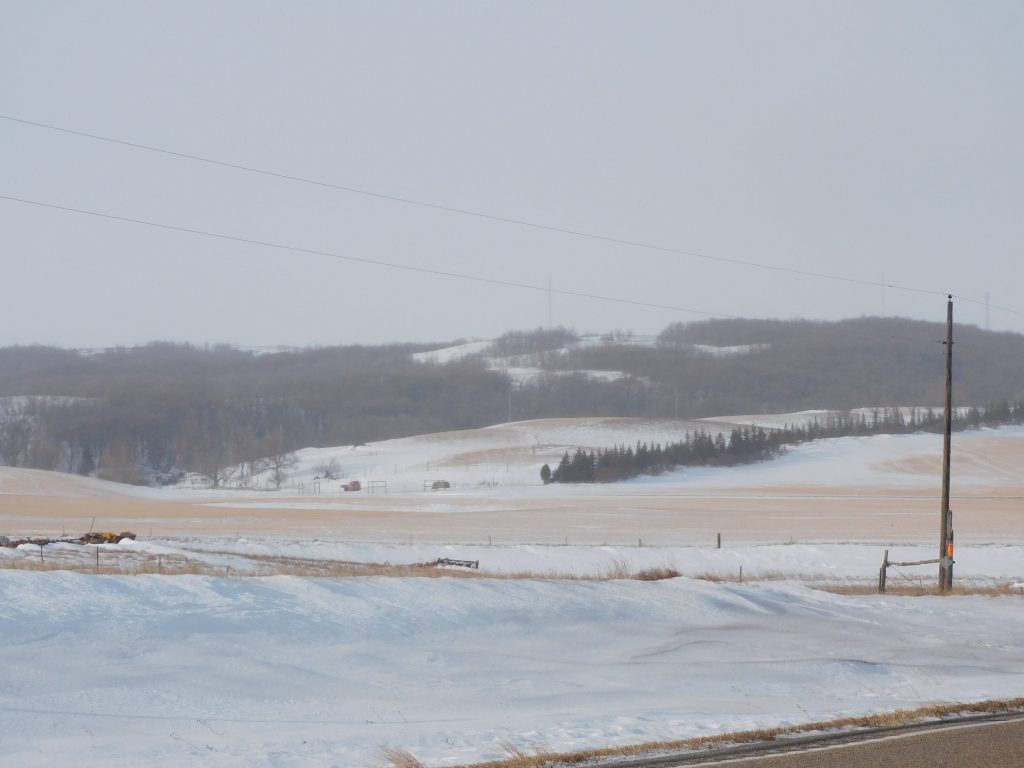Once was – maybe. Maybe yet today.
I’ve always had an interest in the history of our state, mostly the early days before roadways and fences and towns. The period when Dakota Territory was the “Old West”. Sometimes I wish I’d lived back then, just to say I saw it.
When I travel in the state today I see landmarks on the countryside and wonder what meaning they played in the early days prior to statehood. What might have happened there? Was it of any importance? If a vivid imagination doesn’t bring an area to life, a little research usually will.

Kim Fundingsland photo
A favorite spot of mine is the often overlooked Dog Den Butte near the tiny town of Butte, located southeast of Velva just inside the McLean County line. A few miles to the west of Dog Den Butte is Strawberry Lake, a popular body of water ringed with cabins.
The region has a lot of history associated with it. The Totten Trail, a mail route from Fort Totten south of Devils Lake, to Fort Stevenson located south of present day Garrison, ran near the Dog Den. Mail carriers and others traveling on the frontier used Strawberry Lake to fill canteens and water horses in the unsettled region.
Dog Den Butte rises tall over the surrounding landscape, offering a superb view of the prairie below. It was a well-known landmark to early day travelers crossing land marked by few distinguishing features. While the butte served as a lookout spot on the frontier, today it supports various communication towers.
In 1868 Col. Philippe Regis de Trobriand, commander at Fort Stevenson, traversed the Totten Trail with a military escort. He was seeking to find the remains of two mail carriers killed on the trail near Strawberry Lake. He found a bloody sock, nothing else, but he noted in his journal that some on the frontier believed that nearby Dog Den Butte was guarded by “snarling ghost dogs”.
Although it cannot be said with certainty, one of the murdered mail carriers was believed to be dispatched by young Hunkpapa Sioux Sitting Bull who would later become a nationally known figure for his leadership at the Battle of the Little Bighorn and his fierce defense of the Indian way of life.
A much larger shooting scrape, known as the Battle of the Grand Coteau, occurred near the Dog Den July 13-14, 1851. A band of Metis on a hunting foray found themselves surrounding and greatly outnumbered by Sioux warriors.
An eyewitness to the engagement described the land as where “bison grazed in peace” and hunters “were only worried by the passage of war parties, which were looking for scalps.”
The Metis gathered their carts to form a defensive perimeter, placing the women and children in protective dugouts underneath the carts. The Sioux made several attempts to overrun the hastily built fortress but eventually withdrew. The defenders estimated they had killed a dozen Sioux. Despite “thousands of bullets” no Metis were killed in the fight, but a man taken prisoner by the Sioux was executed within view of the Metis fortification.
When I see the Dog Den today, I think about what it has witnessed throughout history, great herds of buffalo, early day inhabitants, and the like. There are many other landmarks in North Dakota that have very interesting stories associated with them too.
A little history and a little imagination make such landmarks come alive, no longer just another part of innocuous landscape passing outside a car window.













